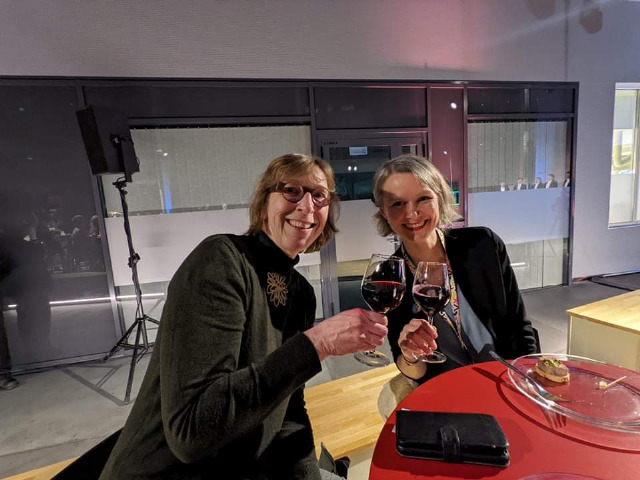A SVALURian attending the ASSW2022, part 1

Every in-person attendance of a scientific networking event needs evaluation: What is the benefit of me flying to Tromsø when most parts of the program can be attended online? The expression „most parts“ is key to the answer. It is the social grooming, small talk during coffee breaks, random elevator and museum encounters, lunch dates and dinners spent in good company that make a difference, filling the word „networking“ with a human content. In some cases even for the first time after the involuntary break during the pandemic. My very first 3D conversation with Annette Scheepstra, who is an advisor to the project on which I am employed as a postdoc since May 2021, thus went as follows:
— „Oh, you are so tall! “
— „Oh, you are so skinny! “
Scientific cooperation in the Arctic… now?! How?
The event went obviously hybrid, which lead to about 1200 registered participants, out of which 350 were expected to show up at the campus of the host, University of Tromsø, between 26 March and 1 April. The other co-organizers were the International Arctic Science Committee (IASC), the Norwegian Polar Institute and the Research Council of Norway.
The congress started only a month after Russia invaded Ukraine, an act of violence negatively impacting (not only) scientific cooperation (also) in the Arctic. The ripple effects are devastating. The territories of Arctic Indigenous peoples often spread throughout territories of nation states, the Russian Arctic is huge, and the absence of Russian colleagues felt heavy. In the welcoming speeches to the Opening Session, the „sad but nevertheless needed decision to ban Russians from the conference “ (or more precisely, representatives of Russian institutions) was mentioned but not really addressed. By the start of the event, IASC hadn’t issued any standpoint or road map for how (if at all) to reinstate cooperation (and more importantly, trust) with Russian scientists.
My participation at ASSW2022 was financed through the University of Hradec Králové since I represent the Czech Republic in the Social & Human Working Group of IASC. During the intense but also productive meeting we had on Saturday afternoon, a thorough discussion around the issue unfolded. Not only are 40% of IASSA (International Arctic Social Sciences Association) members from Russia; many people doing social science and humanities research in the Arctic are dependent on their contacts and relationships in Russia, including Indigenous friends and colleagues. „This has been a success story and I don’t want to give up,“ one working group member exclaimed. Our shared concerns and sometimes also disagreements resonated with the IASC Medal Lecture given by Dalee Sambo Dorough, law and human rights expert who has achieved outstanding results in research on rights of Indigenous peoples: „There is the need to consider what is the right thing to do, how do we create new knowledge without bias, and how do we exercise trust.“
Over de auteur
Zdenka is post-doc at the Arctic Centre working for the Svalur project

